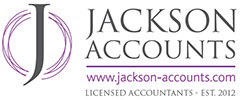MTD ITSA pilot to become more accessible in July
Making Tax Digital for Income Tax Self Assessment (MTD ITSA) will begin to become compulsory from 2024. However, HMRC is encouraging taxpayers to sign up early via the pilot scheme. Now it has announced that from July 2022, the pilot will be expanded, allowing more individuals to join. Who will be eligible?

MTD ITSA will become compulsory for taxpayers with self-employment or property income from April 2024. Certain categories of taxpayer have been able to sign up early to have as much time as possible to familiarise themselves with the requirements, such as keeping digital records and sending quarterly updates. Taxpayers using the pilot still have to submit a tax return at the moment. However, until now the eligibility criteria have been criticised for being very narrow. Coupled with this, the number of software providers that are currently compliant is relatively small. As a result, the uptake in joining the pilot has been very small. HMRC has now announced that taxpayers with the following reportable items will be able to join from July 2022:
- self-employment(s)
- UK property
- Gift Aid
- Pay As You Earn income, including pensions
- UK interest
- UK dividends.
It appears that those with income from other sources, partnerships and with certain charges collected via self-assessment, e.g. the High Income Child Benefit charge, will continue to be excluded for the time being. Anyone wishing to obtain further information should contact their software provider, or HMRC by email at mailboxmakingtaxdigital@hmrc.gov.uk.
Related Topics
-
Pay self-assessment tax
-
HMRC updates advisory fuel rates from 1 March 2026
HMRC has published the latest advisory fuel and electric rates (AFRs) for company cars, effective from 1 March 2026. Several rates have changed since the previous quarter. What should employers be aware of?
-
5 April deadline approaching for key tax relief claims
With the end of the 2025/26 tax year now less than seven weeks away, business owners and company directors should remember that several valuable reliefs and elections must be made before 5 April. Which opportunities are about to close?


 This website uses both its own and third-party cookies to analyze our services and navigation on our website in order to improve its contents (analytical purposes: measure visits and sources of web traffic). The legal basis is the consent of the user, except in the case of basic cookies, which are essential to navigate this website.
This website uses both its own and third-party cookies to analyze our services and navigation on our website in order to improve its contents (analytical purposes: measure visits and sources of web traffic). The legal basis is the consent of the user, except in the case of basic cookies, which are essential to navigate this website.